A Star Born in the City of Light
Imagine Paris in 1943—streets hushed by war, yet still pulsing with art and music. It was in this atmosphere that Catherine Fabienne Dorléac, later known to the world as Catherine Deneuve, took her first breath. Born into a family of actors, she grew up with scripts and stage lights shaping her childhood. Her mother’s maiden name, Deneuve, would eventually become her own—an elegant signature destined to define French cinema. From those early days, she carried a quiet strength that would one day capture the hearts of audiences across the globe.
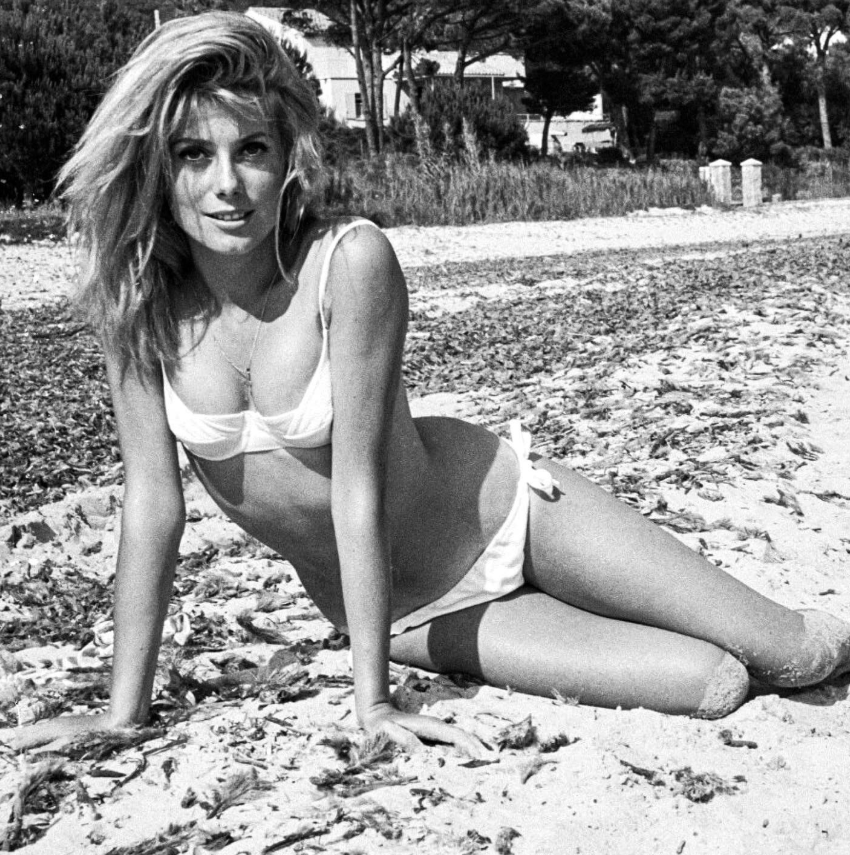
From Childhood Roles to Breakthrough Performances
Deneuve’s earliest screen moments were modest, but her magnetic presence couldn’t be overlooked. She made her debut at 13 in Les Collégiennes (1957), a small role that hinted at a remarkable future. The turning point arrived with The Umbrellas of Cherbourg (1964), a musical where every line was sung and every glance told a story of young love and heartbreak. As Geneviève, Deneuve’s luminous performance turned rain-soaked streets into poetry and earned her international acclaim.
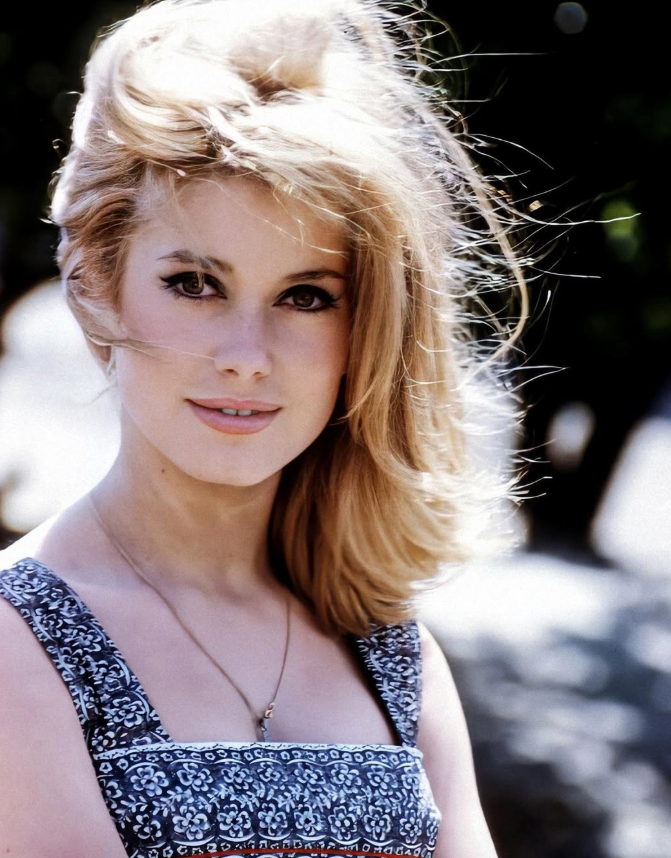
Soon after, Roman Polanski’s Repulsion (1965) revealed a different facet of her talent. Her haunting portrayal of a woman descending into madness showed that Deneuve could embody vulnerability and terror without uttering a single word. This was followed by Luis Buñuel’s Belle de Jour (1967), where she portrayed Séverine, a housewife exploring hidden desires. These roles cemented her reputation as an actress unafraid of complexity, balancing an icy mystique with deep emotional resonance.
Video : 26 Beautiful Photos of Catherine Deneuve in the 1960s
Cementing Her Legacy with Cinematic Masterpieces
The decades that followed proved that Deneuve was far more than a single-era sensation. In The Last Metro (1980), directed by François Truffaut, she played a theater owner fighting to keep art alive under Nazi occupation—a performance that won her a César Award and critical admiration. Then came Indochine (1992), where she portrayed a colonial-era plantation owner entangled in political and personal upheaval. This powerful role earned her an Academy Award nomination and showcased her ability to carry epic narratives with quiet strength.
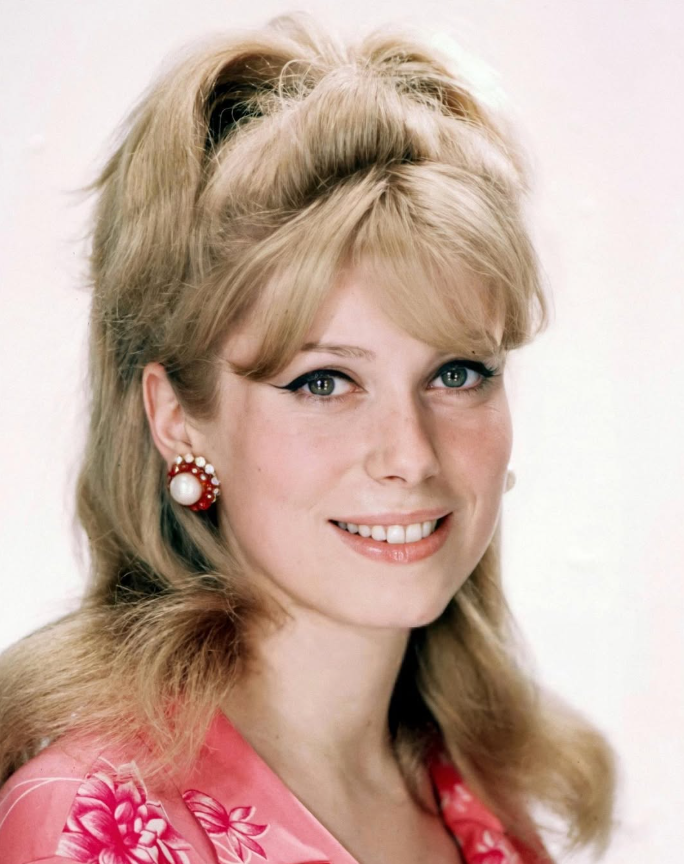
Even in later years, she embraced bold and unexpected projects: Dancer in the Dark (2000), 8 Women (2002), and numerous French-language dramas that proved her creative energy never waned. With more than 130 films to her name, Deneuve has shaped the art of storytelling across generations and continues to inspire filmmakers worldwide.

Style Icon and Fashion Muse
Beyond her filmography, Catherine Deneuve redefined what it means to be an international style icon. Yves Saint Laurent found in her the ideal muse—her natural sophistication perfectly matched his designs. Together, they created looks that blended Parisian chic with cinematic allure. Her collaboration with luxury houses like Chanel made her the embodiment of timeless elegance. The 1970s advertisements for Chanel No. 5, featuring Deneuve’s cool, luminous presence, helped define an era of classic glamour and remain unforgettable even today.
Video : CATHERINE DENEUVE PHOTOS ACTRESS
Private Life and Enduring Strength
While the world watched her every move, Deneuve kept her personal life guarded yet intriguing. She shared a son, Christian, with filmmaker Roger Vadim and a daughter, Chiara, with Italian screen legend Marcello Mastroianni. Behind the camera’s glare, she navigated the joys and sorrows of motherhood and loss, including the tragic death of her sister Françoise. These personal chapters only deepened her onscreen presence, giving her characters an authenticity that can’t be manufactured.
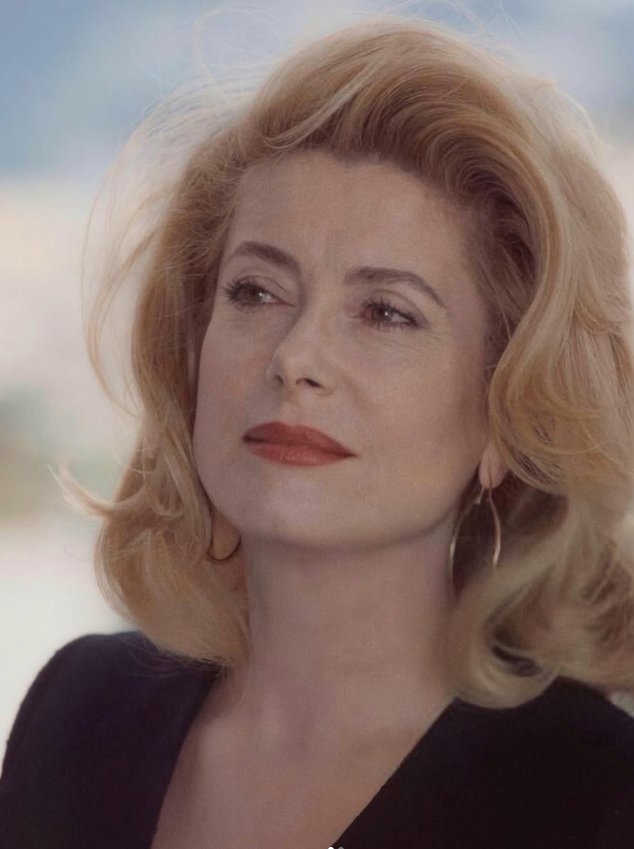
Continuing to Inspire Generations
Now in her eighties, Catherine Deneuve remains an emblem of grace and resilience. After recovering from a health scare in 2019, she returned to the screen with the same captivating presence that first won her acclaim. She mentors young actors, champions cinema culture, and continues to advocate for artistic freedom. Her career reminds us that true stardom isn’t about fleeting fame; it’s about sustaining brilliance across decades while staying true to oneself.
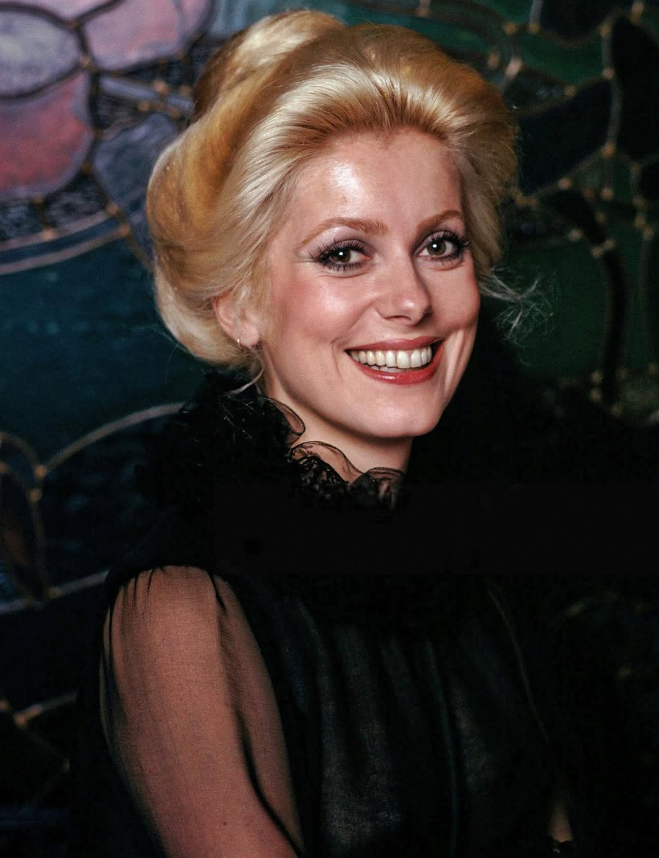
Conclusion: The Eternal Muse
Catherine Deneuve’s journey is more than a collection of films—it’s a story of enduring artistry and effortless sophistication. From the war-torn streets of her childhood to the international red carpets of today, she has remained the epitome of timeless elegance. Her legacy proves that real icons don’t simply belong to the past; they continue to shape the present and inspire the future. When you think of cinema’s eternal muse, it’s impossible not to think of Catherine Deneuve—still luminous, still unforgettable, and forever the golden heartbeat of French film.
